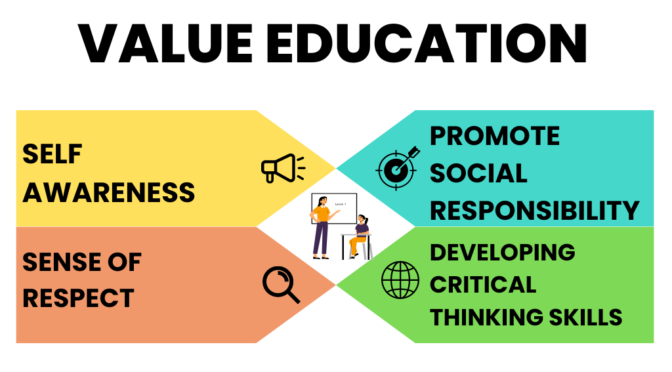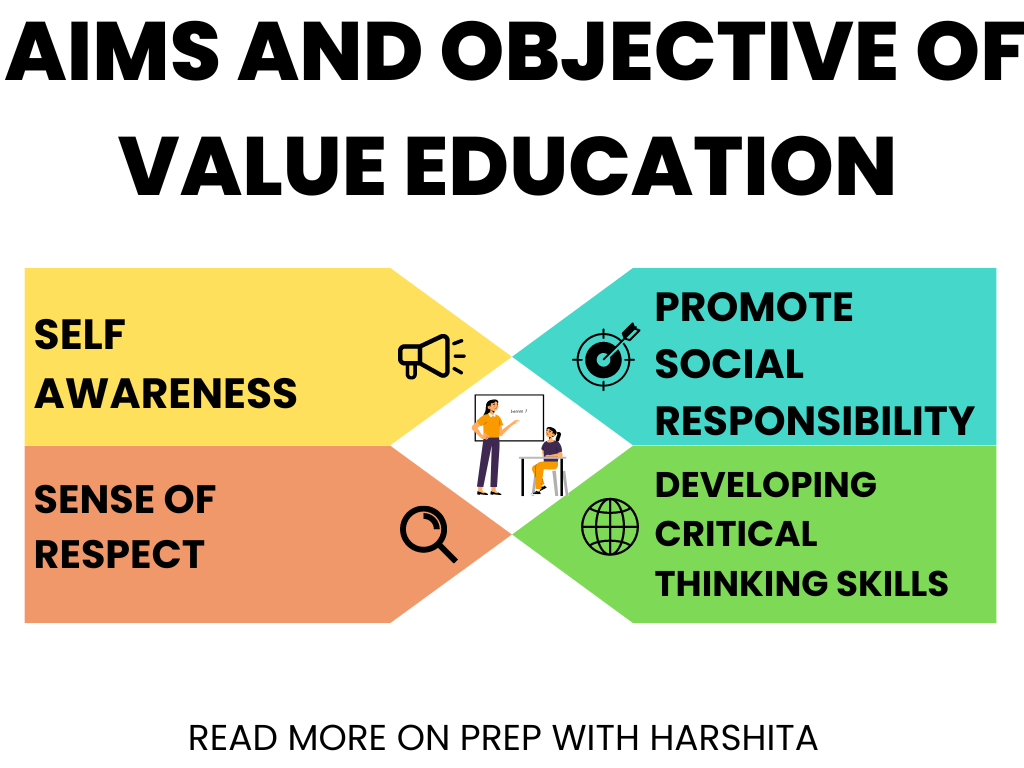Role of Media in developing Values and Morality is significant. Media plays a significant role in shaping the values and morality of individuals and society. The media has the power to influence the beliefs and attitudes of people by promoting certain values, behaviors, and lifestyles.
Here are some ways in which the media can contribute to the development of values and morality:
- Raising awareness: The media can play a crucial role in raising awareness about social and moral issues. It can highlight the consequences of negative behavior and promote positive values. For instance, media campaigns can promote messages of tolerance, respect, and empathy towards others.
- Setting standards: The media can set standards for behavior and lifestyles. It can create role models who exemplify positive values and demonstrate desirable behaviors. For example, television shows and movies can portray characters who exhibit qualities such as honesty, integrity, and kindness.
- Promoting cultural understanding: The media can promote cultural understanding and diversity by exposing people to different cultures, lifestyles, and perspectives. This can help break down stereotypes and prejudice, and promote empathy and respect for others.
- Encouraging critical thinking: The media can encourage critical thinking and analysis by presenting diverse opinions and perspectives. This can help individuals to question their own beliefs and values, and develop a more nuanced understanding of the world.
- Providing education and information: The media can provide education and information on a wide range of topics, including values and morality. For example, news programs can inform the public about social issues and provide analysis of the moral implications of various policies and events.
- Shaping public opinion: Media has the power to shape public opinion and influence the values and morals of a society. By highlighting certain issues and promoting certain values, the media can contribute to the development of a more positive and ethical society.
- Promoting role models: The media can promote role models who exemplify positive values and behaviors. By presenting these role models as examples to follow, media can help to shape the values and morals of individuals and society.
- Exposing people to diversity: The media can expose people to different cultures, lifestyles, and perspectives. By doing so, it can help break down stereotypes and promote empathy and respect for others.
- Holding authorities accountable: The media can hold authorities accountable for their actions and promote ethical behavior. By exposing corruption and abuse of power, the media can help to promote accountability and transparency.
- Creating public debate: The media can create public debate and discussion about important moral and ethical issues. By presenting diverse opinions and perspectives, media can encourage people to engage in critical thinking and develop their own values and beliefs.
- Raising awareness about consequences: Media can raise awareness about the consequences of negative behavior and promote positive values. By highlighting the negative consequences of actions such as violence, discrimination, and intolerance, media can help to promote positive values and behavior.
Also Read : Concept of Values and Value Education
However, the media can also have negative effects on values and morality. For example, media content that glorifies violence, sex, and materialism can promote negative values and attitudes. In addition, the media can reinforce stereotypes and promote prejudice and discrimination.
Therefore, it is important for the media to be responsible and ethical in its coverage and presentation of values and morality. The media should promote positive values and behaviors, and avoid promoting negative values and attitudes. It should also be sensitive to diversity and cultural differences, and avoid reinforcing stereotypes and promoting prejudice. By doing so, the media can contribute to the development of a more positive and ethical society.
Also Visit : Prep with Harshita






